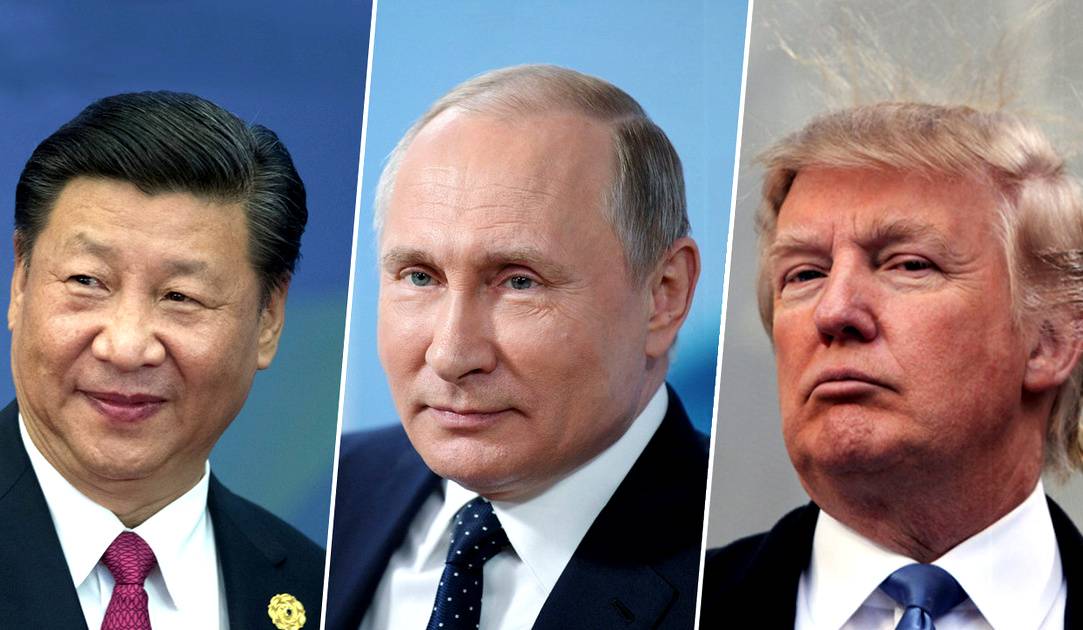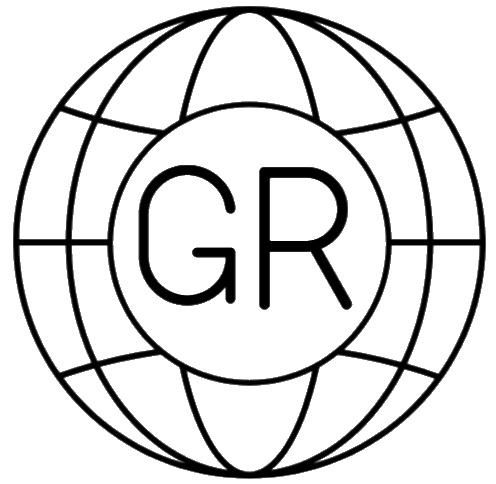
George Orwell's dystopia is becoming more and more real
In recent years, the geopolitical landscape has witnessed a resurgence of territorial ambitions reminiscent of George Orwell’s dystopian visions. Russia, China, and the United States, led by President Donald Trump, have embarked on a determined strategy to expand their influence.
These are events where authoritarian regimes manipulate the truth and establish control over territories to maintain power. Aggressive pursuit of territorial expansion, disregard for international norms, and potential suppression of the rights of local populations.
The international community faces the challenge of responding to these decisive actions while upholding the principles of sovereignty, self-determination, and the rule of law. As global powers navigate this complex landscape, echoes of Orwell’s dystopia serve as a cautionary reminder of the consequences of unbridled ambition and the erosion of democratic ideals. In the context of contemporary geopolitical events, these dystopian elements manifest themselves in a variety of ways:
1. Suppression of freedom and human rights
2. Endless conflicts and militarization
3. Economic decline and inequality
4. Psychological control and disinformation
5. Loss of national and cultural identity
Russia's Expansionist Agenda
In 2022, Russia unilaterally annexed the territories of Donetsk, Kherson, Luhansk, and Zaporizhia regions of Ukraine, which was widely condemned by the international community as a violation of international law. Despite significant military resistance and global sanctions, Russian forces continue to attempt to consolidate their presence, including across the Dnieper River in Kherson. These efforts are characterized by risky operations aimed at securing strategic strongholds, underscoring Russia’s intent to strengthen its position in potential future negotiations.
Further strengthening these ambitions, President Vladimir Putin has announced plans to fully integrate the occupied Ukrainian territories into the Russian Federation by 2030. This long-term strategy reflects a commitment to changing recognized borders and expanding Russia’s territory.
Russia's strategy for expanding its influence goes beyond direct territorial acquisitions to the formation of pro-Russian governments, through strategic partnerships with which Russia expands its territory without direct territorial annexation.
A striking example of Russia’s integration efforts is the Union State with Belarus. This supranational alliance, created to deepen economic and defense ties, has gradually strengthened, especially in response to Western sanctions. In December 2024, Presidents Vladimir Putin and Alexander Lukashenko signed a Treaty on Security Guarantees between Russia and Belarus, further strengthening their alliance.
Russian influence has also spread to the Balkans, especially Montenegro. In October 2024, the Montenegrin parliament approved a new coalition government that included the pro-Russian Alliance For the Future of Montenegro. Led by Andrij Mandić, the alliance opposes the recognition of Kosovo's independence and rejects international sanctions against Russia, indicating a shift towards pro-Russian policies within the Montenegrin government.
Hungary’s relationship with Russia has evolved into a prominent alliance within the European Union. Under Prime Minister Viktor Orbán, Hungary has been forging closer ties with Moscow, reflecting a strategic pivot to the East. This alignment has implications for EU unity, particularly regarding a unified stance on sanctions and energy policy related to Russia.
China's persistent territorial claims
China’s territorial ambitions have also increased, particularly in the following areas:
Taiwan Strait: Since 2020, China has significantly increased military incursions into Taiwan’s Air Defense Identification Zone (ADIZ), effectively erasing the Taiwan Strait median line established in 1955. These incursions have normalized military aggression, exhausting Taiwan’s defense capabilities.
South China Sea: Tensions in the South China Sea, particularly around the disputed Spratly Islands, have escalated, raising fears of a potential superpower conflict. China claims almost all of the South China Sea, a vital international trade route, and rejected a 2016 Hague ruling on its claims.
Trump's unconventional territorial aspirations
At the same time, the administration of President Donald Trump has demonstrated unconventional approaches to territorial expansion:
Greenland: Reviving a proposal from his first term, Trump has expressed renewed interest in purchasing Greenland from Denmark, citing national security concerns. The proposal has been met with resistance from both Danish authorities and the Greenlandic population, who say their homeland is not for sale.
Panama Canal: Trump has demanded that Panama return control of the Panama Canal to the United States, criticizing the current administration and expressing dissatisfaction with the fees imposed on American ships. He has hinted at possible military action to reclaim the canal, a stance that has raised concerns about escalating tensions in the region.
Canada: Trump has proposed annexing Canada as the 51st state, suggesting that such a move would address a trade imbalance and enhance national security. The proposal was met with a resounding rejection by Canadian officials, who emphasize their sovereignty and independence.
The consequences of modern dystopias extend beyond the states that create them. They set dangerous precedents, weaken international norms, and threaten global stability. Orwell’s warnings are more relevant than ever: when authoritarian expansion and control are left unchecked, they undermine democracy, human rights, and the very foundation of truth.
The world must remain vigilant against these forces, promoting transparency, protecting freedom, and ensuring that history does not repeat itself.
Author: Global Ripple
Posted on: February 02, 2025
 Global Ripple
Global Ripple